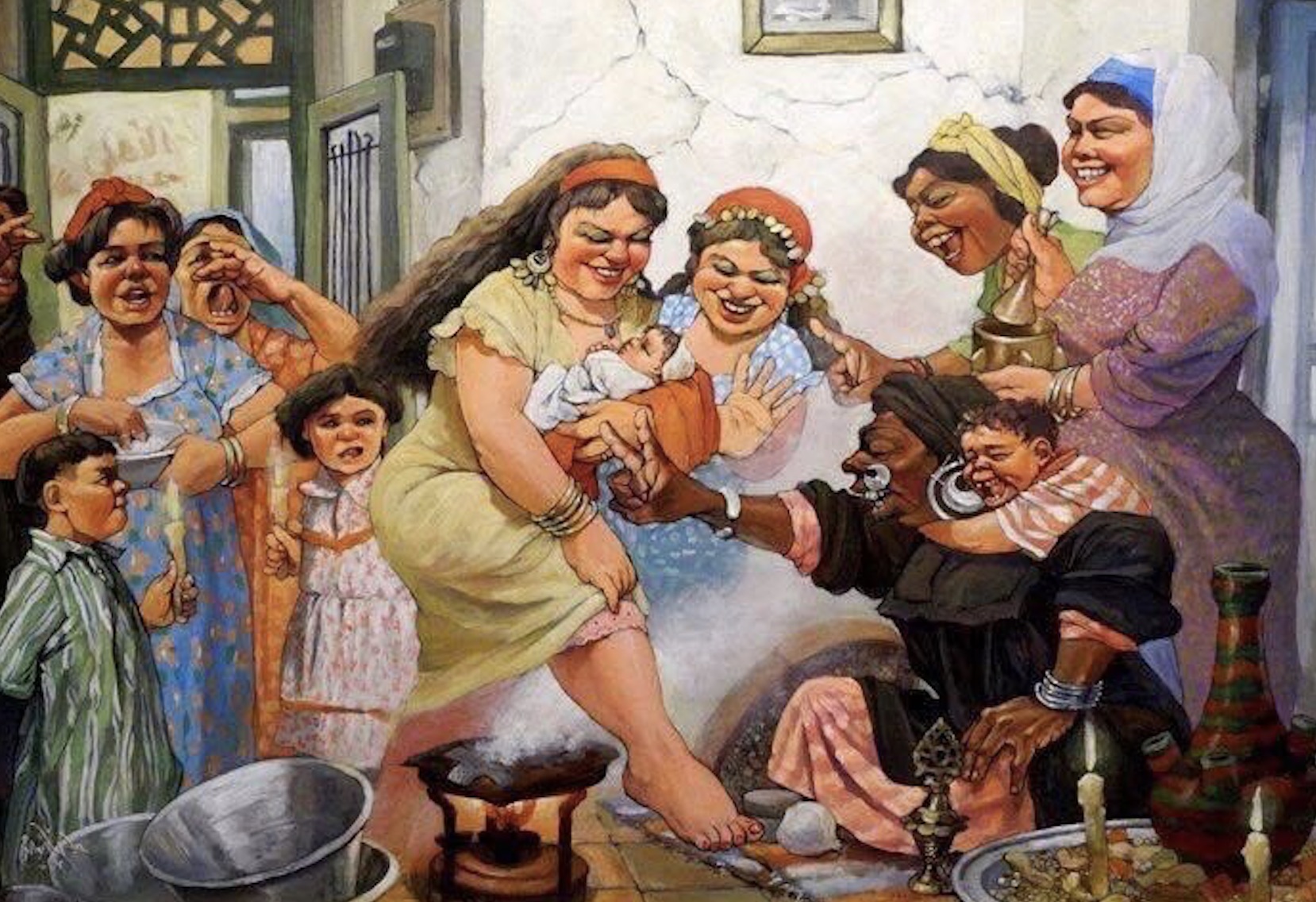The arrival of a newborn in the family is an unmatched joy– between happily teary-eyed faces and an excitement for the future – Egyptians welcome newborns in revelry, most notably known as the Egyptian sebou’ (The Seventh). The sebou’ is a ritual that takes place on the seventh day after the birth of a child of either sex, a tradition celebrated by Muslim and Coptic families alike. The ceremony marks the newborn’s crossing to the world, for Egyptians, it is a rite of passage with three phases of transition: separation, liminality, and incorporation. The celebration is said to date back to ancient Egypt, with murals and papyri from the New Kingdom depicting similar patterns of celebrations. One theory is that the celebration occurs on the seventh day because the ancient Egyptians believed that newborns began cultivating their sense of hearing on the seventh day after their birth. Pharaohs created noises through beating on pots and singing to ‘strengthen the child’s sense of hearing’, and then the ancient Egyptians would pray to the deities for protection over the child. In ancient Egypt, child mortality was high, as were the increased dangers…



